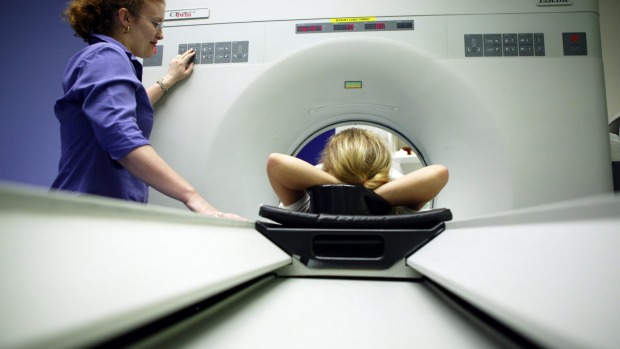
Two rival private hospital leaders, Healthscope‘s Robert Cooke and Ramsay Health Care‘s Chris Rex, say a research report from Macquarie that warned of a hit to the companies’ growth is premature and ignores important trends.
Macquarie’s health analyst published a note on Monday warning that a federal government review of the Medicare Benefits Schedule would hit ‘utilisation’ of services, which is the largest driver of revenue growth for the companies.
Investors were unnerved by the analysis. On Monday Healthscope shares fell 4.8 per cent to $2.36, while Ramsay shares lost 3.2 per cent to $60.65. The broader market fell 0.7 per cent.
One of the main goals of the MBS review was to “link reimbursement to good clinical practice and remove unnecessary care,” the analyst wrote in the note, adding this could “flatten” utilisation growth.
Growth in utilisation, which refers to the amount of care received per person, accounted for 37 per cent of private hospital revenue growth in the past decade, Macquarie estimated. This puts it ahead of rising prices (28 per cent), population growth (20 per cent) and increased private insurance coverage (10 per cent) as a driver of growth.
Macquarie said if utilisation growth stayed flat for two years it would reduce earnings per share by 11.5 per cent for Ramsay and 13.7 per cent for Healthscope. He downgraded his rating for Healthscope to “neutral” and pulled down Ramsay by two notches from “outperform” to “underperform”.
However Mr Cooke told Fairfax Media that with the final report not due until 2017, predicting outcomes was still a guessing game. He described policy intervention in healthcare as notoriously “difficult”, given it challenged “a clinical decision on what treatment is given by someone who is well qualified and on the spot”, but warned against expecting the worst.
“That review and a number of other reviews have identified differences in utililsation rates and potentially overservicing, but the same reports also identify underservicing,” he said. “We welcome the review, which addresses the changing technologies and review of treatment outcomes, but at the end of the day, given the pressures on the public health system, the growth in population and demographics [remain as drivers of healthcare], nothing a has fundamentally changed with our business.”
In a strident statement Ramsay’s Mr Rex said the report failed to consider further utilisation growth linked to the ageing population. “Macquarie’s report incorrectly concludes that the modest impact of ageing in the past means that the impact will be minimal in the future,” he said. “But it is the future impact of ageing – the baby boomers moving into the 60-70 year bracket – that needs to be considered… We have not yet felt the ageing impact – it is yet to come.”
“Our view is that Macquarie rarely produces anything credible and this report is solid evidence of that,” Mr Rex said. “In relation to the impact of some unnecessary procedures being taken off the MBS, we have no concerns. Medical practice is most likely ahead of the changes to come anyway.”
He said medical practice was continually evolving based on evidence-based practice. “As soon as one procedure becomes obsolete another takes its place – we find better ways of doing things. It does not mean that the underlying issues disappear – we just find a different way to treat it.”
